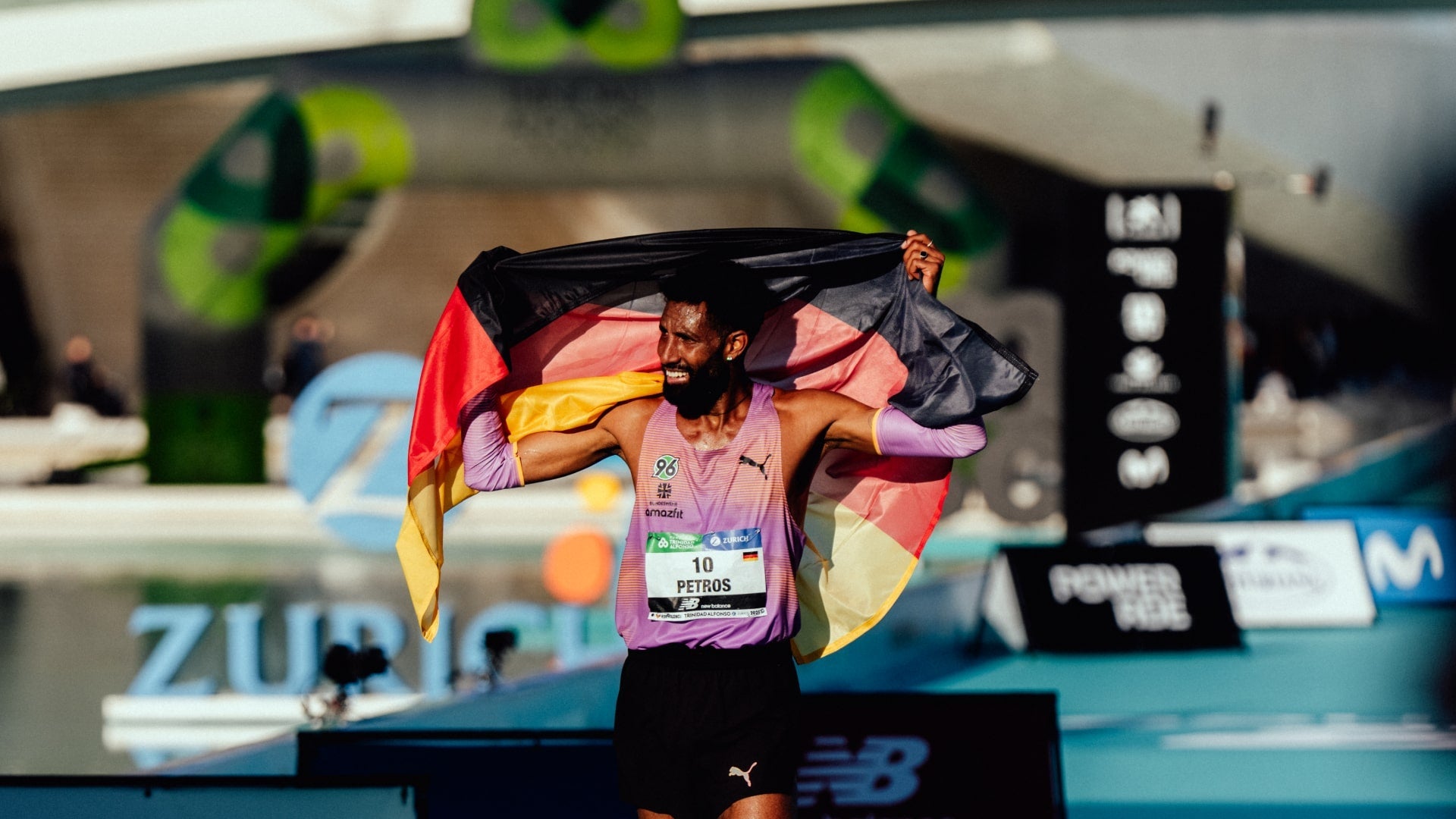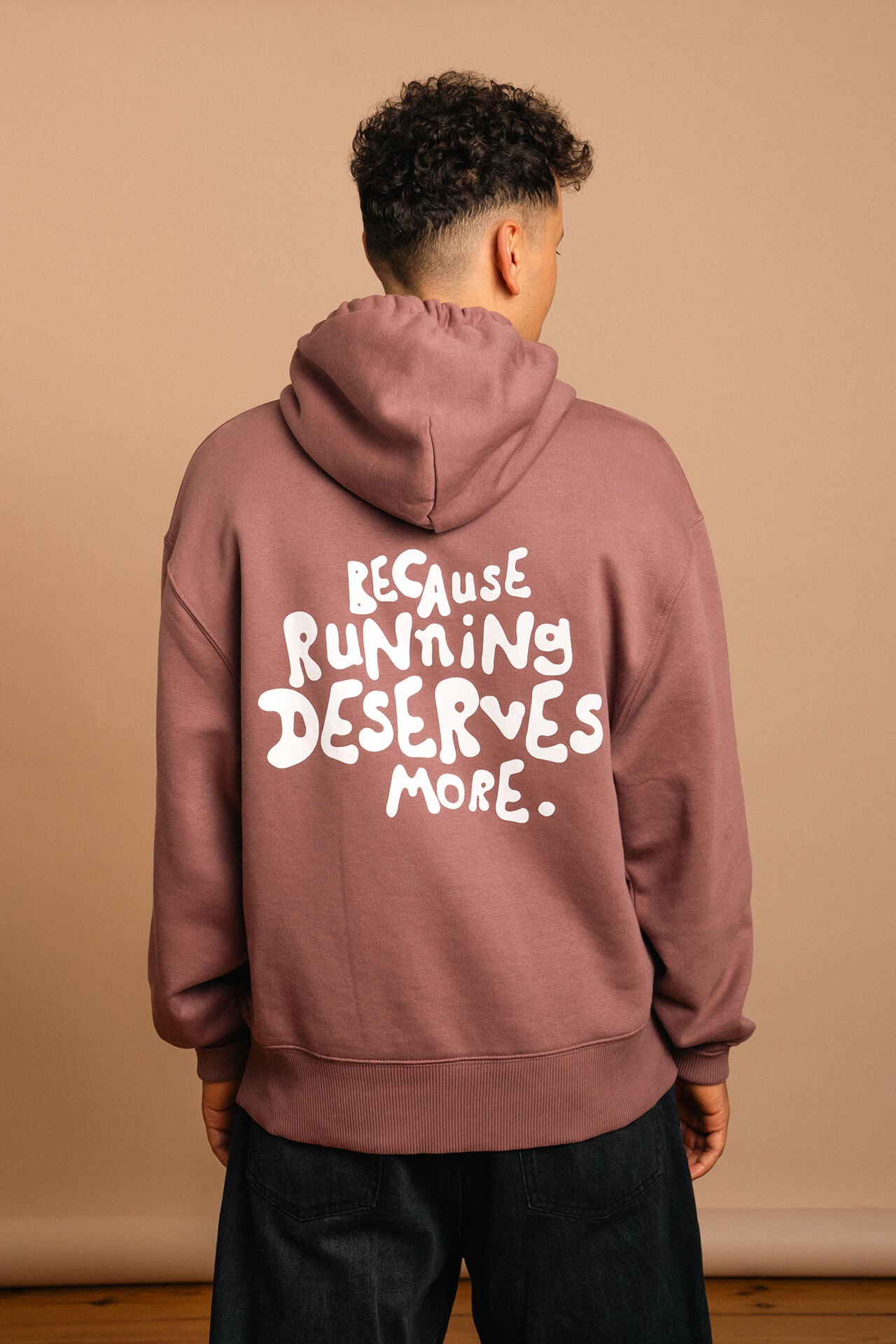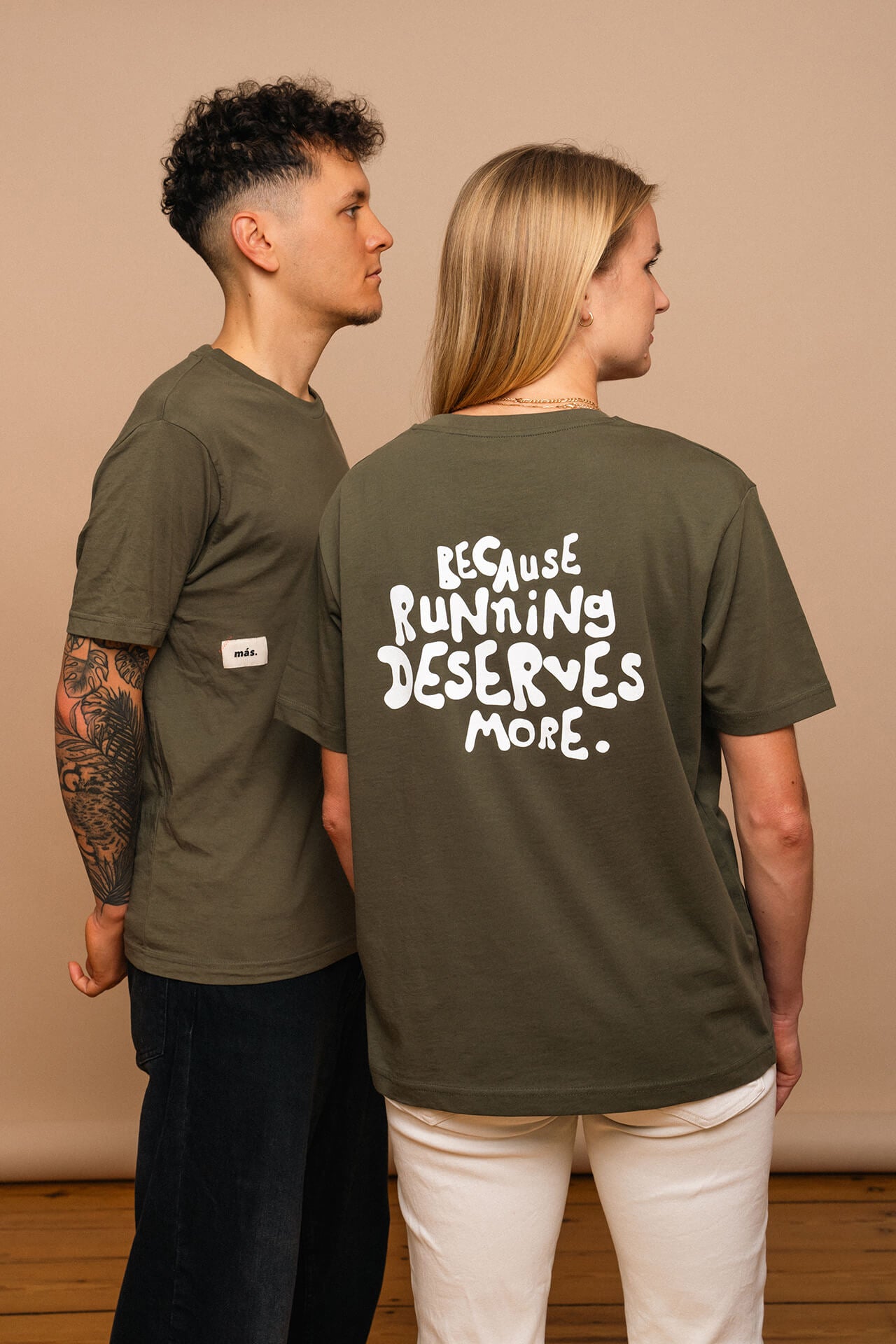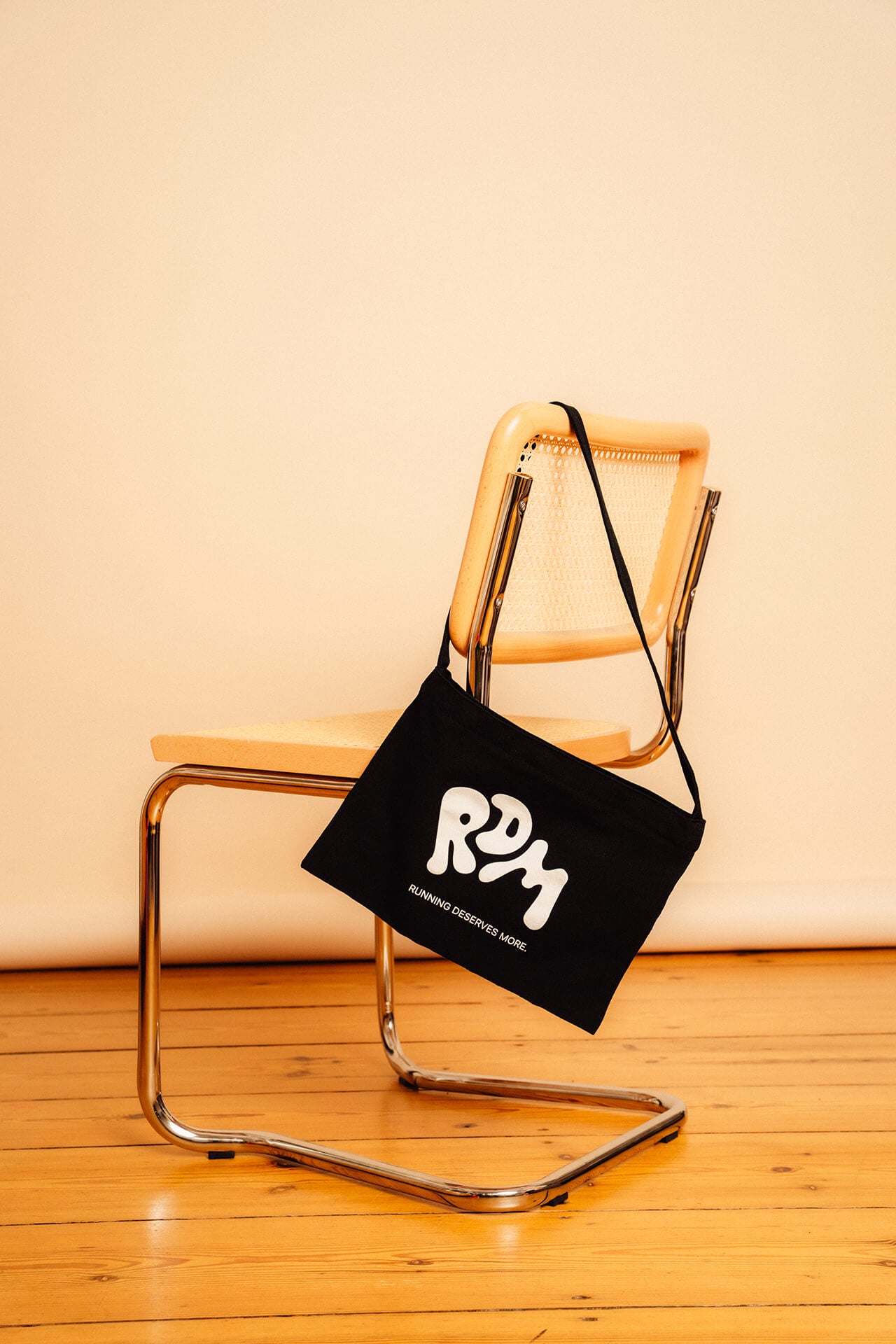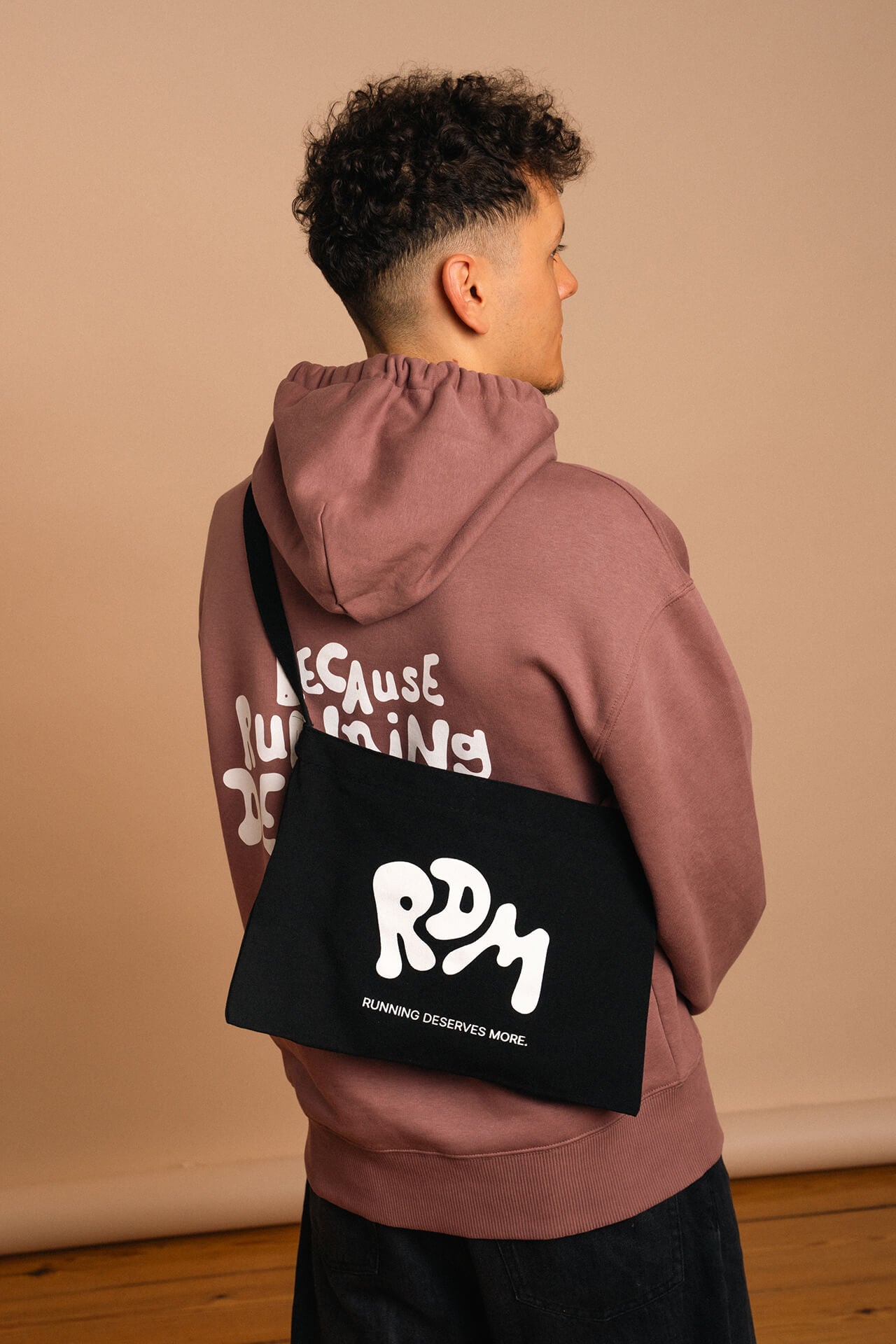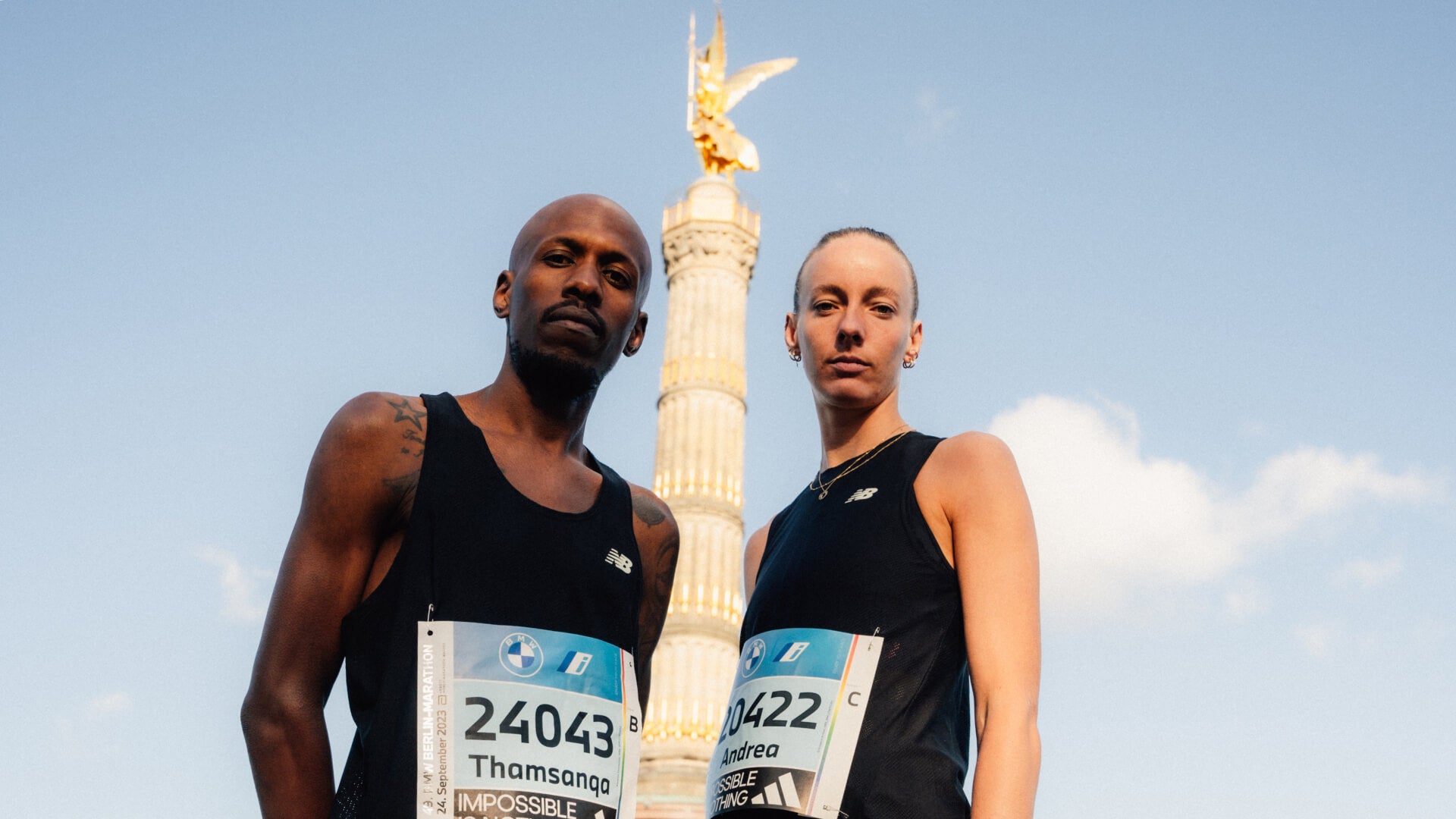
Embracing the monotony – why running needs more honesty
The marathon has a magical attraction for runners. Running 42.195 kilometers hurts. Why do you do that? We accompanied two community runners – and learned important things in the process.
Words: Agata Strausa
Video: Marta Robles and Tim Kalkkuhl
Photos: Florian Kurrasch
This article and the accompanying short documentary were produced in collaboration with New Balance.
Each race is just the culmination of a long journey
If you want to not only complete a marathon but also finish it successfully, you have to prepare well. Above all, that means walking a lot. Over weeks and months. In addition to the easy runs, the program includes long runs, interval training and tempo sessions. Of course, that's not always fun. “If running always comes easy, you’re doing something wrong,” a well-known runner once said. How do you manage to go through the whole training mentally? más asked the two community runners Andrea and Thami. Both ran the marathon in Berlin and gave a personal insight into the highs and lows of their passion for running.
The challenge of the marathon - and the inner struggle with oneself is what makes the marathon so attractive for Thami. “I never run a marathon with music,” says the South African, who lives in Vienna. “I want to feel the moment, I want to feel the run, even if it hurts.” He can communicate best with himself without the distraction of music. “When my legs are tired, I look for ways to get myself out of there instead Just letting myself be distracted by an external source like music. It always gets hard at some point. You have to push yourself, whether in training or competition: 'Last rep, let's go! Kilometer 38, let's go!'”

“Competition is where we all come together”
“We all train a little differently,” says Thami, who lives in Vienna and is a member of the Vienna Running Collective. Running is an individual sport, everyone has their own training routine, says Thami. “But when we compete, we all come together.” At the Berlin Marathon, he simply spoke to two starters next to him and asked them about their finish time. He had already found a small group to run with. But after the race, runners joined in again kept busy himself. Thami first lay down in the sun with two bananas, a bit of trail mix and something to drink. “I just didn’t want to do anything, absolutely nothing,” he remembers. Just eat a little, get some electrolytes and sleep. That He did that too and took a 20 minute nap in the finish area in the afternoon sun.
“During the marathon in Berlin, I had situations where I felt so satisfied that I cried,” remembers Andrea. This happened to her at the start, at the beginning of the race and at the finish. At the finish she actually had to cry for joy because she was so happy to have made it.

“No one wants to fail at their own goal”
Andrea, who trains in Cologne with the Run Squad Cologne, had already run two marathons before Berlin. At the first races she was nervous the week before and was under tension. Doubts like “Can I achieve my own goal?” literally hit her stomach, so that she had little appetite, she remembers. Even if no one gives you a time limit that you have to achieve, the thought of failing to achieve your goal preoccupies you. It was different before the Berlin Marathon. The good preparation, the many fast training runs - all of this gave her security so that she could start the marathon with joy.
She was also able to eat beforehand - a sign that she was less nervous than before. But she maintained one habit in the starting block: retying her shoes several times so that they fit snugly and comfortably. This is something like her pre-start ritual, she says. During the marathon, she even briefly went to the side after the starting signal to readjust her running shoes: “It’s a mental thing, but the shoes really have to fit for the run!”

More honesty and transparency among runners
Something else was different this time in Andrea's preparation for the marathon: three weeks before the start in Berlin she ran the “New Balance Kö Meile”, a middle-distance race in the middle of marathon preparation. “It was a relatively spontaneous decision,” says Andrea. She wanted to incorporate a small, quick competition into her preparation so that she could experience the feeling of competition again. The tension before the race, the warm-up, the starting signal and then giving it your all in the competition. This helped her to build up anticipation for the competition in the run-up to the marathon.
“ You never get used to the racing situation ”
“You never get used to the racing situation,” says Andrea. “It's always different, there's always a basic tension, nervousness, joy, that tingling feeling when you start running." In general, there's little talk about difficulties and doubts in the running community, says Andrea. There's not enough exchange of ideas about how to cope mentally deals with it and above all there is a lack of honesty.

 “I'm convinced that most people don't have a good time during training, but very few people want to talk about it, especially online.” If there were more exchange about the negative aspects that everyone experiences, then it wouldn't be such a taboo, believes Andrea. “We all know we are struggling. But most of the time it's not talked about. It would help to know that others feel the same way. Too many people just make it about themselves.”
“I'm convinced that most people don't have a good time during training, but very few people want to talk about it, especially online.” If there were more exchange about the negative aspects that everyone experiences, then it wouldn't be such a taboo, believes Andrea. “We all know we are struggling. But most of the time it's not talked about. It would help to know that others feel the same way. Too many people just make it about themselves.”
“The more we share, the better,” Thami also believes. “As runners, we have a lot in common, but we still don’t share enough of our experiences,” he says. After the Berlin Marathon, for example, he met all the professionals at the official afterparty who celebrated their success like all the other participants. “They were very relaxed, totally relaxed and happy to have done it,” remembers Thami.

Break the monotony of training
Before every marathon race there are weeks of preparation with ups and downs, for professionals as well as community runners like Andrea and Thami. “There's really no big secret when it comes to marathon training. You just have to invest a lot of time,” says Thami. This time he tried to run more kilometers to see how much his body could take. He also added more fast runs because he noticed that it was good for his form. He did a lot of training together with a good friend who is also an enthusiastic runner. “This time I also focused not only on what happened in training, but also on what I do afterwards,” says Thami. “For example, when it comes to nutrition after training. I read up on myself and then listened to my body and what it needed at the moment.”
Sports massages were also an important part to improve regeneration. “I recommend this to all runners!” says Thami. He enjoyed the training so much that he didn't feel like tapering before the marathon. Thami would have preferred to keep running instead of taking rest breaks before the competition. “At some point, running no longer gave me motivation in everyday life; it had become a habit.”


For Andrea too, sport is not just a purpose, but also something that gives her strength in her daily life. “What I like most about running is the peace I feel while running,” says Andrea. “Sometimes I find hard intervals better than any easy run. I'm so busy with myself that I don't think about work, what appointments I have left, or whether I still have to do laundry."
What runners need to talk more about
Just running, being outside and switching off is a nice feeling. But sometimes she doesn't feel like training, the stress and sweating, Andrea admits. But she also says: “You still usually feel a lot better after running!” She is calmer and more balanced when she has made an effort beforehand. “Sometimes you just don’t want to leave - and that’s okay,” she says. Then it helps her to think about the feeling afterwards. Andrea would also like other runners to speak up honestly when they don't feel like it.
It's important to say it and be able to say: "I'm not in the mood today!" It's not about just talking about problems so that it gets you down, says Andrea. Rather, it would be about talking about all aspects of sport, not just the positive ones.


“Sometimes training can look great on paper, but in reality it felt really bad,” says Andrea. “I would like to see more talk about it.” In any case, there is no guarantee that the input in training corresponds to the output in the competition, says Thami. He freed himself from the pressure of wanting to achieve a certain result on the day of the competition, but rather accepted every result as an interim result. “As long as you can walk, you can keep going. At some point it will work.”
Because every run brings with it new experiences. Sooner or later, all runners face similar challenges during preparation and competition. Your own experiences or the reports from other runners help you overcome this. The most important thing is: it has to feel right for you: Run Your Way.




